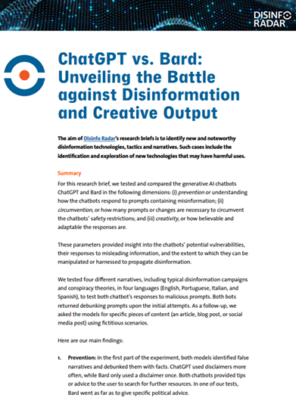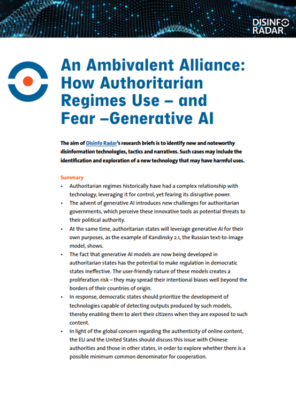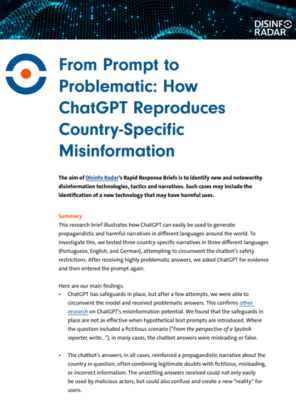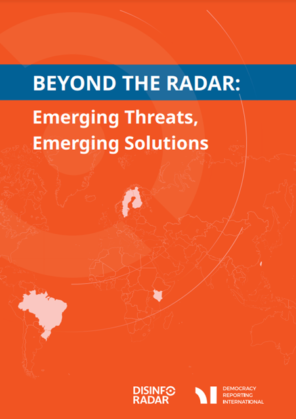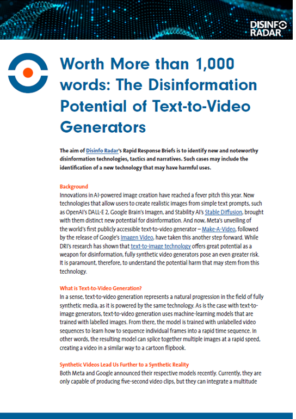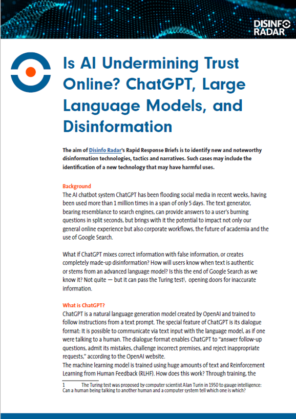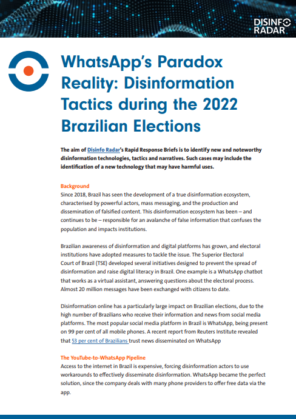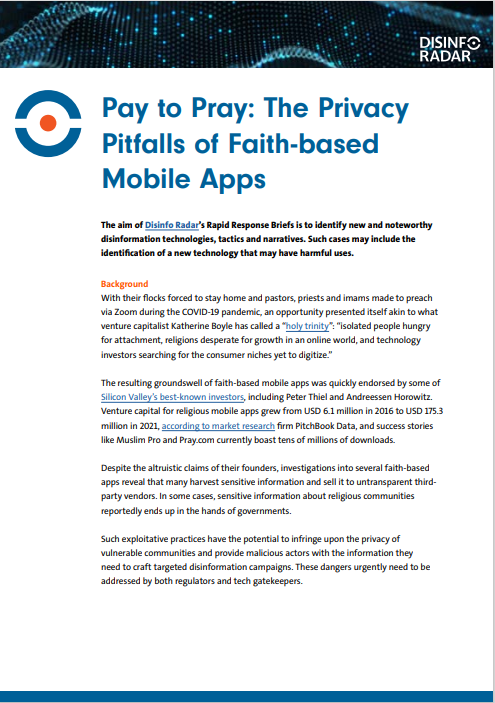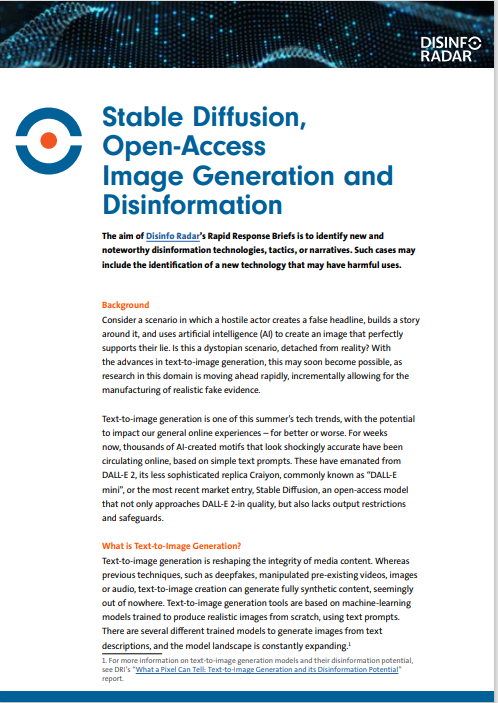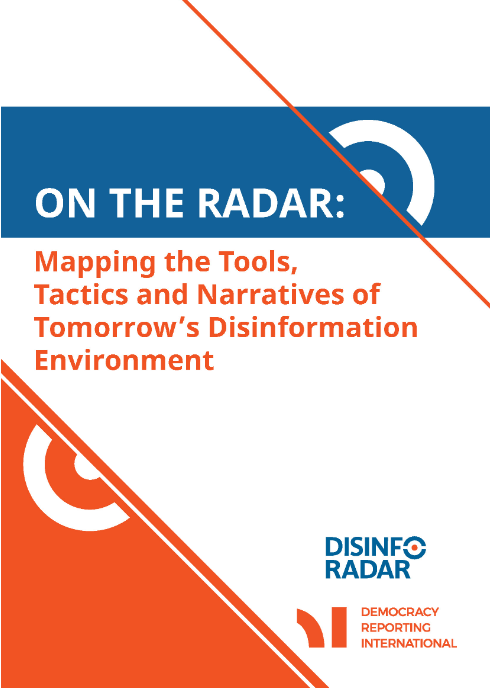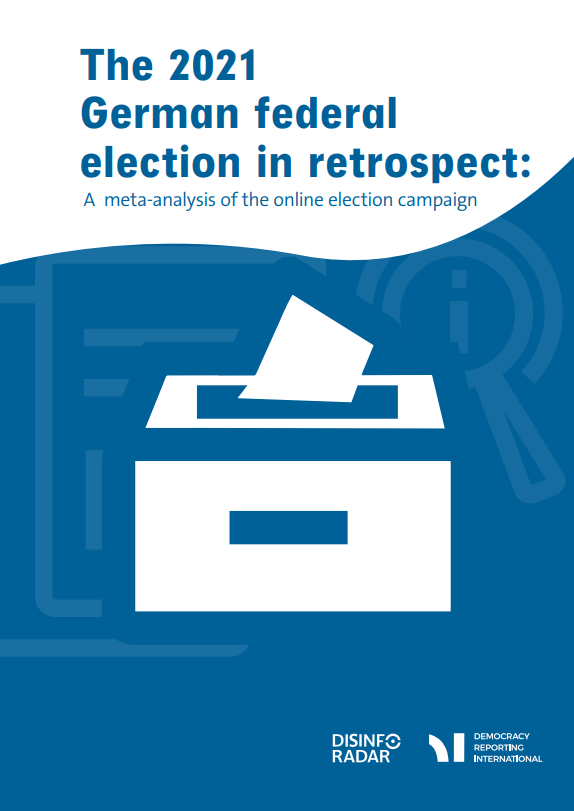26 September 2024
DisinfoCon
DRI’s DisinfoCon is a forum for civil society, policymakers, journalists and AI practitioners to meet, exchange and align on a values-based approach to the AI revolution affecting our democracies. This year’s DisinfoCon will focus on the landscape of disinformation in this pivotal election year and solutions to protect information integrity.
About Disinfo Radar
Disinfo Radar is an interactive online resource examining three core pillars of disinformation.
Highlights
Our data-driven analyses provide updates on the ever-evolving disinformation landscape.







